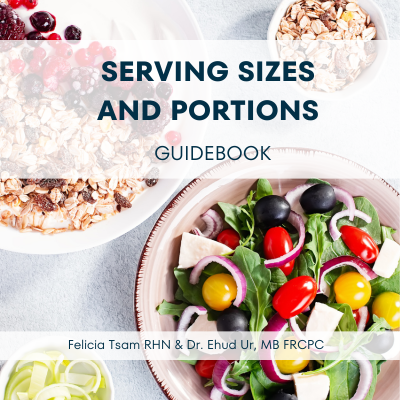Soy MilK
My Milk of Choice
Soy milk has become my go-to simply because it checks all the boxes. It's not just about taste—though that's a big part of it—but also about nutrition, versatility, and the science that backs it up.
Soy milk is high in protein, low in calories, low in saturated fat, fortified with a lot of the vitamins and minerals I may not get throughout the day and packed with isoflavones/phytoestrogens.
If you’re already drinking a plant based milk, I hope this post helps you in choosing the right plant milk for you and your dietary needs and goals.
Lactose Intolerance: A Global Issue
Lactose intolerance affects around 70% of the world’s population, with varying prevalence among different ethnic groups. For example, about 95% of Asians, 60% to 80% of African Americans and Ashkenazi Jews, and 50% to 80% of Hispanics have difficulty digesting lactose. This means that for the majority of people, cow's milk can cause discomfort, including bloating, gas, and diarrhea. Soy milk, being naturally lactose-free, offers a smooth alternative that avoids these issues.
Hormones: Cow's Milk vs. Soy Milk
There’s often concern about hormones in our food, and rightly so. Cow’s milk contains naturally occurring hormones like estrogen and progesterone, which are necessary for a growing baby cow but may not be ideal for humans—especially in large amounts.
Soy milk, on the other hand, contains phytoestrogens, which are plant-based compounds that are structurally similar to estrogen but function differently in the body. These phytoestrogens act as natural selective estrogen receptor modulators, meaning they can have beneficial effects on some tissues, like bones, without the negative effects on others, like the breast.
Myth-Busting: Soy and Male Hormones
A common myth is that soy disrupts male hormones, leading to lower testosterone levels or even feminization. However, multiple studies, including large meta-analyses, have found no significant effects of soy consumption on male hormones. Soy is a safe and healthy option for everyone, regardless of gender.
Protein Power
One of the standout features of soy milk is its protein content. Unlike most other plant-based milks, which tend to be low in protein, soy milk offers around 7-8 grams of protein per cup—comparable to cow’s milk. This makes it an excellent option for those who need a reliable source of plant-based protein, whether they’re vegan, vegetarian, or just looking to cut back on animal products. The protein in soy contains all the essential amino acids your body needs for growth and repair.
Myth-Busting: Bioavailability of Calcium and Other Nutrients
One of the main concerns people have when switching from cow's milk to plant-based milk is whether they're getting enough calcium. Soy milk is often fortified with calcium and vitamin D, making it comparable to cow's milk in terms of these essential nutrients. Additionally, soy milk naturally contains a significant amount of protein, which is unique among plant-based milks. Additionally, soy milk is frequently fortified with vitamin B12, and minerals such as magnesium and potassium, making it a nutrient-dense choice.
Lectins: The Anti-Nutrient Debate
Lectins, a type of protein found in many plants, including soy, have been demonized in some circles. However, the concern over lectins is largely overblown. Cooking or processing soy (as is done in making soy milk) significantly reduces lectin levels, rendering them harmless. Moreover, the health benefits of soy far outweigh any potential risks from lectins.
Taste and Versatility
One of the reasons I love soy milk is its creamy texture and neutral taste, which make it a versatile addition to my diet. Whether I’m pouring it over cereal, blending it into smoothies, or using it in recipes, soy milk works well in a variety of dishes. It’s also great for baking, where its higher protein content can improve the texture of baked goods.
GMO Concerns: Setting the Record Straight
If you’re worried about GMOs, you should know that most of the soy consumed by humans is not genetically modified. The majority of GMO soy is actually fed to livestock, meaning that if you consume animal products, you’re indirectly consuming GMOs. By choosing soy milk, especially organic options, you can avoid GMOs altogether.
Health Benefits: Menopause, Cancer, Heart Health, and Bone Health
Soy milk offers a range of health benefits that go beyond being a simple milk substitute. For women going through menopause, soy milk can help alleviate symptoms like hot flashes, thanks to its phytoestrogen content. These same phytoestrogens have also been shown to reduce the risk of hormone-related cancers, such as breast and prostate cancer.
For heart health, soy milk is a winner. It’s naturally low in saturated fat and cholesterol-free, which helps reduce the risk of cardiovascular diseases. Additionally, soy protein has been shown to lower LDL cholesterol levels, further protecting your heart.
Bone health is another area where soy milk shines. Studies suggest that soy phytoestrogens can help maintain bone density and reduce the risk of fractures, especially in postmenopausal women.
Now you see why I choose soy milk over oat milk, almond milk or cows milk. I hope this article encourages you to take a peek at the nutrition label on your milk of choice. If you want to learn more about how to read nutrition labels, check out our easy to use guidebook ‘Serving Sizes and Portions’.




